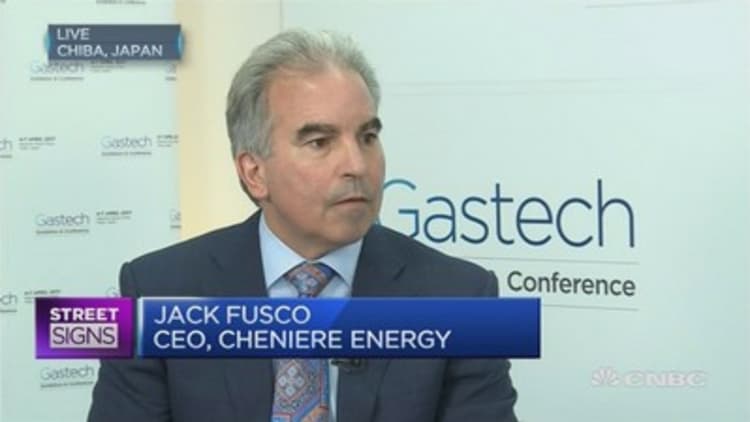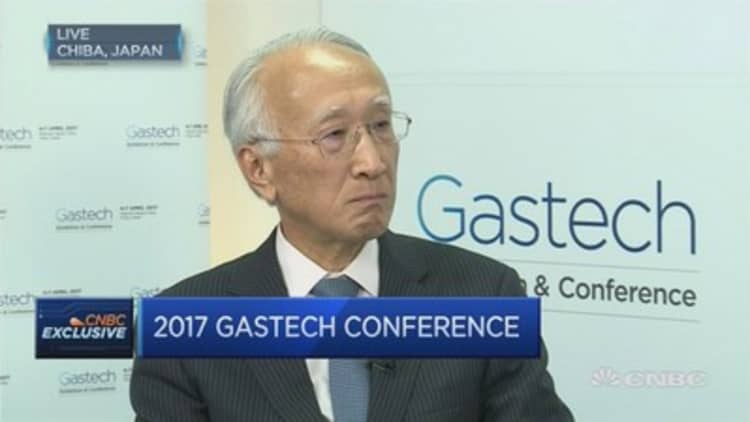
An oversupply of natural gas is keeping prices low for an extended period of time, but U.S. gas exporter Cheniere Energy says it has no problems finding homes for its products as the company keeps its contract terms flexible.
"What you're seeing is a supply-demand price reaction, which is what you'd expect when the market becomes more transparent, more liquid, more seasonal and less bilateral," said Cheniere CEO Jack Fusco.
The market, Fusco said, is moving away from bilateral contracts that have dominated the market for decades to spot contract trading, which now makes up to a third of the market.
His comments come on the back of a pact by the world's largest liquefied natural gas buyers, all of whom are located in Asia, to secure more flexible supply contracts in a move that shifts power to importers from producers amid the supply glut, Reuters reported on March 23.

Exporters traditionally prefer to lock clients into fixed supply contracts running for decades, during which buyers take fixed amounts of monthly gas volumes irrespective of demand. The buyers also cannot resell the gas under the contracts' so-called destination restrictions.
Cheniere said it has no problems letting customers call the shots.
"We will let any of our customers ship any of their cargo anywhere they want to in the world," Fusco told CNBC on the sidelines of the Gastech conference in the Japanese city of Chiba.
The entrance of American gas exporters like Cheniere has turned the gas trade upside down as Asian buyers make their case for more flexible contracts.
"When you purchase LNG in a long-term contract, you have to buy. But when demand comes down due to issues like nuclear reactors restarting, you need to resell," said Nobuo Tanaka, chairman of the Gastech Japan 2017 Consortium and former executive director at the International Energy Agency.
"When caught with this kind of changes, we need some flexibility or the spot market in order to adjust the demand and supply situation in the short-term," he told CNBC.



